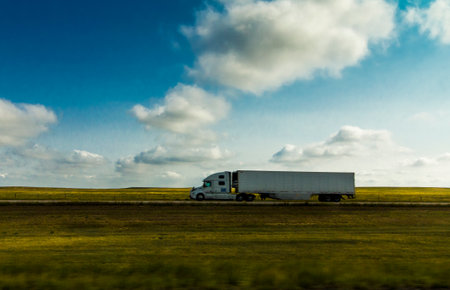Introduction to UK Campsite Culture
The culture of camping in the United Kingdom is deeply rooted in both tradition and a spirit of exploration, shaping the expectations and experiences of motorhome travellers today. Unlike many countries where wild camping may be more common, the UK’s approach places great emphasis on established campsites that balance access to nature with respect for local communities and regulations. This has led to a distinctive campsite culture where facilities are carefully curated to meet the practical and social needs of visitors. From the rolling hills of the Lake District to the rugged coastlines of Cornwall, British campsites reflect a unique blend of comfort, community, and environmental stewardship. These cultural nuances directly influence the design, layout, and amenities offered at modern campsites, ensuring they cater not only to convenience but also to the quintessential British desire for orderliness and conviviality. As a result, motorhome travellers can expect a high standard of essential facilities that enhance their journeys while fostering a welcoming atmosphere that is unmistakably British.
Electric Hook-Ups and Power Solutions
When travelling across the UK in a modern motorhome, access to reliable electricity is more than just a convenience—it’s a necessity. From powering essential appliances such as fridges and heating systems to charging personal devices and maintaining lighting, dependable electric hook-ups are foundational for a comfortable stay at any British campsite. In this section, we’ll explore why reliable electricity matters, the types of electric hook-ups available at UK campsites, and the voltage standards specific to the UK.
The Importance of Reliable Electricity Access
Modern motorhomes come equipped with a range of electrical amenities designed to enhance comfort and safety on the road. Without a steady power supply, key systems such as water pumps, heating, and refrigeration may fail, leading to discomfort or even compromising health and safety. Additionally, many travellers now rely on electronic devices for navigation, communication, and entertainment. Reliable electricity access ensures uninterrupted usage of these technologies during your stay.
Types of Electric Hook-Ups Available
UK campsites typically offer several types of electric hook-up (EHU) points to cater for different needs. The most common connection is the 16-amp socket using a blue CEE plug, which has become the standard across Europe. Some sites may also provide lower amperage options or even unmetered connections. Here’s a quick overview:
| EHU Type | Amperage | Description |
|---|---|---|
| Standard EHU | 16A | Most common; supports most modern motorhome requirements. |
| Low-Amperage Hook-Up | 6A or 10A | Found at smaller or older sites; suitable for basic needs. |
| Unmetered Connection | Varies | No meter; generally includes electricity in site fee. |
| Metered Connection | Up to 16A | Pay for what you use; ideal for extended stays. |
UK-Specific Voltage Standards
The United Kingdom operates on a 230V system with a frequency of 50Hz, aligned with European standards but differing from some other regions globally. All motorhome users should ensure their appliances are compatible with these specifications to avoid damage or inefficient operation. Adapters are sometimes required if your vehicle was manufactured outside of Europe. Additionally, it’s prudent to carry a circuit breaker (RCD) for added safety when connecting to campsite power supplies.
A Practical Note for Motorhome Owners
If you’re planning an extended trip or visiting rural areas where power supplies can be less predictable, consider equipping your motorhome with auxiliary batteries or solar panels as backup solutions. These measures can provide peace of mind and extend your independence from mains electricity.
By understanding the importance of reliable electricity access and familiarising yourself with the types of hook-ups and voltage standards in the UK, you can plan confidently and enjoy a seamless motorhome experience wherever your travels take you across Britain.

3. Water, Waste, and Sanitation Facilities
At the heart of a comfortable motorhome experience in the UK lies the reliability and quality of water, waste, and sanitation provisions. Modern British campsites are acutely aware of the needs of today’s travellers, placing a strong emphasis on these essential facilities to ensure both convenience and environmental responsibility.
Fresh Water Points
One of the first things seasoned motorhome enthusiasts look for upon arrival is easy access to fresh water. Across the UK, campsites generally provide clearly marked water points situated at regular intervals throughout their grounds. These are designed to accommodate various hose attachments, catering for both continental and British fittings. Some sites offer dedicated drive-over fill stations, making it hassle-free for even larger motorhomes to replenish their tanks without reversing or awkward manoeuvres.
Grey and Black Waste Disposal Systems
The management of grey (wastewater from sinks and showers) and black (toilet) waste is handled with precision at most reputable UK campsites. Purpose-built chemical disposal points—often referred to colloquially as “Elsan points”—are commonplace. These are usually sited away from main communal areas for hygiene reasons but remain easily accessible. Increasingly, drive-over grey waste drains are being introduced, allowing motorhomers to empty their tanks efficiently and with minimal fuss. This attention to practicality ensures a swift turnaround for onward journeys or simply a fresh start to another day on site.
Environmentally-Responsible Waste Management
British campsites are particularly proactive about eco-friendly operations, reflecting wider national values around sustainability. Many have adopted advanced wastewater treatment systems that reduce environmental impact before any effluent reaches natural waterways. Signage encourages responsible disposal practices; biodegradable chemicals for cassette toilets are often recommended or required. Some sites go further by offering recycling bins specifically for single-use plastics associated with chemical toilet products, highlighting an ongoing commitment to green camping initiatives.
Key Takeaway
When choosing a campsite in the UK, discerning motorhome owners will find that attention to water supply and waste management is not just about convenience—it is part of a broader ethos towards responsible travel. With robust infrastructure in place and a clear focus on sustainability, modern British campsites set a high standard that aligns perfectly with the expectations of today’s environmentally-conscious travellers.
4. Wi-Fi and Connectivity
The digital landscape has transformed expectations for motorhome holidays in the UK, with reliable internet access becoming a near-essential amenity for many travellers. Whether it’s staying in touch with family, remote working, streaming entertainment, or simply accessing route information, connectivity is now a critical aspect of the modern campsite experience.
Growing Demand for Internet Access
Over the past decade, demand for robust internet connections at campsites has risen sharply. Motorhomers increasingly rely on smart devices, cloud-based navigation, and social media while on the road. This shift means that campsites are under pressure to provide Wi-Fi services that can accommodate multiple users and devices, especially during peak holiday periods.
Typical Wi-Fi Services Offered at UK Sites
Campsites across the UK vary widely in terms of their Wi-Fi provision. Some offer complimentary basic access throughout their grounds, while others charge a fee or restrict free service to communal areas such as reception or clubhouses. The table below summarises common Wi-Fi service models you’ll encounter:
| Wi-Fi Service Model | Description | Typical Locations | Cost |
|---|---|---|---|
| Free Basic Access | Limited speed/data for emails and browsing | Main site areas, clubhouses | No charge |
| Paid Premium Access | Higher speeds and data suitable for streaming/remote work | Pitches & communal spaces | £2–£10 per day |
| Reception-Only Access | Wi-Fi only available near reception or café areas | Reception/café zones | No charge or minimal fee |
| No Site Wi-Fi (BYO) | No facility; guests use personal mobile hotspots/data SIMs | N/A (reliant on mobile signal) | User dependent (network rates apply) |
Common Connectivity Challenges in Rural Areas
Despite increased investment, rural and coastal campsites still face significant obstacles when delivering high-quality connectivity. Many sites are located in picturesque but remote regions where broadband infrastructure is limited and mobile coverage patchy. Adverse weather can also impact wireless signals, affecting both campsite-provided Wi-Fi and individual mobile data connections.
Key Issues Motorhomers Encounter:
- Limited Bandwidth: Shared networks often slow down during busy periods.
- Poor Mobile Signal: Valleys, forests, and coastal cliffs can block 4G/5G signals.
- Data Restrictions: Some campsites cap usage to prevent network congestion.
- Lack of Coverage: Not all pitches may be within range of the site’s router or access points.
Practical Tips:
- If consistent connectivity is crucial, check site reviews for real-world feedback on Wi-Fi quality.
- Consider investing in a mobile hotspot with an external antenna and a UK data SIM card for backup coverage.
- If working remotely, look for sites advertising “workation” facilities – these often include upgraded internet options.
As more travellers bring their digital lives along for the journey, the ability of UK campsites to provide dependable Wi-Fi and mobile signal is fast becoming a key factor when choosing a stopover. While progress continues across the sector, understanding what to expect—and planning accordingly—remains essential for a seamless motorhome adventure.
5. Communal Spaces and Social Amenities
One of the distinguishing features of UK campsites catering to modern motorhomes is the thoughtful provision of communal spaces and social amenities. These shared areas are more than just practical additions; they form the heart of campsite life, encouraging interaction among campers and fostering a strong sense of community.
Lounges and Common Rooms
Many British campsites now include indoor lounges or common rooms where guests can relax regardless of the weather. These spaces often feature comfortable seating, bookshelves stocked with novels and board games, and sometimes even a television for catching up on local news or major sporting events. Such areas provide a warm welcome after a day exploring the countryside, and they naturally become gathering points for friendly chats, shared travel stories, or simply enjoying a cup of tea together.
Laundrettes
On-site laundrettes have become an essential facility for extended stays, offering washing machines, tumble dryers, and ironing boards. While their primary function is practical, laundrettes frequently double as informal meeting spots where campers exchange tips about local attractions or favourite walking routes while waiting for a wash cycle to finish. The presence of these facilities helps ensure that longer journeys remain comfortable and civilised—an expectation among seasoned UK motorhome travellers.
Children’s Play Areas
Family-friendly campsites in the UK are almost always equipped with well-maintained children’s play areas. Swings, climbing frames, sand pits, and occasionally adventure playgrounds provide safe environments for younger visitors to burn off energy and make friends. This not only entertains the children but also gives parents opportunities to connect over shared experiences, creating lasting relationships that often extend beyond the confines of the campsite.
The Social Glue of Campsite Life
These communal spaces serve as much more than functional amenities—they are the social glue that binds the motorhoming community together. British campers are renowned for their friendliness and willingness to lend a hand or share advice. By providing welcoming environments designed for interaction, UK campsites nurture these traditions. Whether it’s an impromptu barbecue in a shared picnic area or joining in on quiz nights organised in the lounge, these experiences create memorable moments and turn fellow travellers into friends.
Summary
In summary, communal spaces such as lounges, laundrettes, and play areas are integral to modern UK campsites. They not only enhance convenience but also cultivate camaraderie, making every stay feel like part of a wider adventure shared with like-minded explorers.
6. Security and Safety Provisions
When considering essential facilities for modern motorhomes at UK campsites, robust security and safety measures are paramount. Today’s motorhomers travel with valuable equipment, personal electronics, and often plan extended stays, so a site’s commitment to safety is a significant deciding factor. Campsites across the UK have responded by implementing comprehensive security systems that ensure peace of mind for every guest.
CCTV Surveillance: Eyes on the Site
One of the most visible and reassuring features is the presence of CCTV cameras strategically positioned throughout campsite grounds. These systems operate around the clock, deterring opportunistic theft and providing vital evidence should incidents occur. For many British motorhomers, visible signage indicating 24/7 surveillance is a welcome reassurance that their vehicles and possessions are being monitored at all times.
Gated Entry Systems: Controlled Access
Secure, gated entries are now standard at most reputable UK campsites catering to motorhomes. These gates are typically operated via keycards, fobs, or number plate recognition technology, ensuring that only authorised guests and staff can access the premises. This controlled access reduces unauthorised traffic, enhances privacy, and fosters a community atmosphere where visitors can relax knowing they’re in a protected environment.
Safe Storage Facilities: Protecting Your Valuables
Modern campsites also provide designated safe storage options tailored to motorhomers’ specific needs. Lockable storage lockers are available for items such as bicycles, outdoor equipment, or important documents—ideal for those planning day trips or excursions away from their vehicle. Many sites offer these lockers within well-lit communal areas close to reception or main amenities, further boosting both convenience and security.
A Holistic Approach to Safety
Beyond physical measures, many UK campsites maintain strict visitor policies and employ on-site wardens or night staff who conduct regular patrols. Emergency procedures are clearly displayed throughout the site, including up-to-date contact numbers for local services. This holistic approach ensures that motorhomers not only feel secure but also have immediate support should any issues arise during their stay.
In sum, security provisions at UK campsites have evolved in line with the expectations of today’s motorhome community. From CCTV coverage to gated access and dedicated safe storage solutions, these essential facilities help guarantee a safe and enjoyable touring experience wherever your journey takes you across Britain.
7. The Importance of Local Character and Sustainability
One of the most compelling aspects of UK campsites for modern motorhome travellers is the way essential facilities are thoughtfully integrated with local character and sustainable initiatives. Unlike generic, one-size-fits-all sites, many British campsites distinguish themselves by embracing the unique charm of their surroundings. This can be seen in everything from traditional stone-built amenities blocks to communal spaces inspired by regional architecture or local history.
Blending Facilities with a Sense of Place
UK campsite operators often go beyond providing standard services such as electric hook-ups, chemical disposal points, and Wi-Fi. They incorporate features that reflect the local landscape—think timber-clad shower blocks in woodland areas or eco-friendly pods that complement coastal scenery. These thoughtful details not only enhance the visitor experience but also instil a genuine sense of place, making each stay memorable and distinctive.
Championing Eco-Friendly Practices
Sustainability is increasingly at the forefront of campsite development. Many sites now employ solar panels, rainwater harvesting systems, and recycling stations as standard. Some even offer EV charging points and encourage guests to use public transport or cycling routes to explore nearby attractions. Such efforts demonstrate a commitment to reducing environmental impact without compromising comfort or convenience for motorhome users.
Engaging with Local Communities
A strong connection to local communities further defines the character of UK campsites. On-site shops might stock produce from nearby farms, while information boards promote independent pubs, markets, and heritage trails. Events like farmers’ markets or guided nature walks are often organised in collaboration with local partners, giving visitors an authentic taste of rural or coastal life while supporting small businesses and sustainable tourism practices.
By weaving together essential facilities, a distinctive sense of place, and eco-conscious values, UK campsites set a high standard for modern motorhome travel. This holistic approach not only meets practical needs but also celebrates British landscapes and traditions—an experience that is both comfortable and culturally enriching for all who visit.


